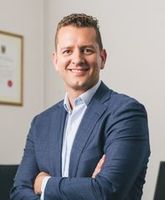Central Auckland, East Auckland, North Auckland, Northland, South Auckland, West Auckland > Private Hospitals & Specialists >
Harbour Cancer & Wellness
Private Service, Oncology
Today
Description
Harbour is a leading cancer treatment centre with clinics in Auckland’s North Shore and Newmarket. Harbour specialists integrate cutting edge treatment, prescribed exercise and supportive therapies to provide exceptional care for people with cancer.
OUR SERVICES
Cutting Edge Treatment
We provide cancer treatments across all tumour streams including chemotherapy, immunotherapy, targeted therapies, hormonal treatment, haematology services and symptom management.
Oncology Physiotherapy and Exercise
Prescribed exercise treatment is considered the gold standard of cancer care. Our oncology physiotherapy team provide physiotherapy assessment, hands-on treatment and tailored exercise sessions to minimise side effects of cancer treatment and maximise clinical outcomes.
Pharmaceutical Guidance
Our in-house pharmacist provides expert knowledge of pharmaceutical treatments, as well as information and education on complementary and alternative medicine.
Massage Therapy
Specialist massage therapy can be a valuable part of treatment and recovery. Therapeutic massage sessions are available at our clinics.
Genetic Counselling
We have Genetic Counselling services available which assist both oncologist and patient to understand the genetic underpinnings of a diagnosis and to identify potential treatment options, information on ongoing follow up (post all treatment) and potentiality for other cancer risk. A Genetic Counsellor can also assist with discussing the results as a family; providing either reassurance or predictive testing options with risk assessment and screening advice.
Our Team
Our Oncologists and Haematologists have expertise in all tumour types including blood cancers, and cancers of the breast, lung, melanoma, male genitourinary system (prostate, bladder and kidney), female reproductive system (ovary, uterus and cervix), gastrointestinal tract (oesophagus, stomach and bowel), brain and cancers of unknown primary.
Our clinics are designed for comfort, convenience and privacy, and our experienced team is here to support you through the whole of your cancer journey.
What is Oncology?
Oncology is the area of medicine involving cancer. An oncologist is a doctor specialising in the treatment of cancer either with chemotherapy (medical oncologist) or radiation (radiation oncologist). Other doctors are involved in the treatment of cancer such as surgeons, palliative care specialists (doctors who specialise in the treatment of symptoms from cancer that cannot be cured) and general physicians (who often are involved in the diagnosis of cancer). If you have cancer you are likely to be referred to some of these doctors depending on the type of treatment that is advised. The Oncology Service also consists of wellness specialists; physiotherapy, acupuncture, massage, dietetics and psychology. The Oncology team also works alongside hospices and the Cancer Society www.cancernz.org.nz who provide support to people with the diagnosis of cancer.
Consultants
Note: Please note below that some people are not available at all locations.
-
Dr Karen Amies
Medical Oncologist
Available at Northern Clinic - Southern Cross North Harbour Campus, 212 Wairau Road, Wairau Valley, Auckland
-

Dr Amanda Ashley
Medical Oncologist
Available at Northern Clinic - Southern Cross North Harbour Campus, 212 Wairau Road, Wairau Valley, Auckland
-

Dr Anna Bashford
Medical Oncologist
Available at 105 Carlton Gore Road, Newmarket, Auckland
-

Dr Sanjeev Deva
Medical Oncologist
Available at Northern Clinic - Southern Cross North Harbour Campus, 212 Wairau Road, Wairau Valley, Auckland
-

Dr Anna Elinder Camburn
Clinical Haematologist
Available at all locations.
-

Dr Clément Korenbaum
Medical Oncologist
Available at 105 Carlton Gore Road, Newmarket, Auckland
-

Dr Soizick Mesnage
Medical Oncologist
Available at all locations.
-

Dr Angela Mweempwa
Medical Oncologist
Available at all locations.
-

Dr Gareth Rivalland
Medical Oncologist
Available at all locations.
-

Dr Rebecca Roberts
Medical Oncologist
Available at Northern Clinic - Southern Cross North Harbour Campus, 212 Wairau Road, Wairau Valley, Auckland
-

Dr Jane So
Medical Oncologist
Available at all locations.
-

Dr Rosalie Stephens (nee Fisher)
Medical Oncologist
Available at all locations.
How do I access this service?
Contact us
Harbour Cancer & Wellness
09 220 3333
referrals@harbourcancer.co.nz
EDI: cancwell
Referral Expectations
For patients
At Harbour we know how stressful a diagnosis of cancer can be. Once you have been referred to us we will guide you through any treatment or investigations you may need. In the meantime, see frequently asked questions.
For referrers
Here is the electronic referral form.
Fees and Charges Description
Harbour Cancer Centre is an Affiliated Provider to Southern Cross Health Society. If you are a Southern Cross member, this allows us to help make claiming on your insurance easy.
Hours
| Mon – Fri | 8:00 AM – 5:00 PM |
|---|
Public Holidays: Closed Labour Day (28 Oct), Auckland Anniversary (27 Jan), Waitangi Day (6 Feb), Good Friday (18 Apr), Easter Sunday (20 Apr), Easter Monday (21 Apr), ANZAC Day (25 Apr), King's Birthday (2 Jun), Matariki (20 Jun).
Procedures / Treatments
Cancer is diagnosed with a number of tests but usually a biopsy is needed. This is where a sample of the lesion/growth is sent to the laboratory to be examined under the microscope. This can tell the doctors exactly what type of cancer is present and guides them to what sort of treatment might be best. Samples can be obtained with different techniques: Fine needle aspirate (FNA): a small needle is inserted into a lump and some cells are sucked out and sent to the laboratory. If the lump is on the surface of your body the doctor will do this in the consultation room with some local anaesthetic injected into the skin so the procedure won’t hurt. If the tumour is inside your body an FNA can still be done but it is done with guidance from a CT scanner or ultrasound so the doctor can see where the needle needs to go. This is done by a specialist radiologist (a doctor trained in the speciality of x-rays). Biopsy: a small piece of a lesion is cut out and sent to the laboratory. If it is on the outside of your body this procedure is done with local anaesthetic (makes the area numb so it doesn’t hurt). Sometimes it can be done by putting tiny telescopes into areas they can’t reach to take the biopsy. Sometimes an operation is required to be sure about the diagnosis. Endoscopy: a flexible tube with a viewing lens and a fibre optic light on the end is passed through natural body orifices (openings) to view the colon (colonoscopy), stomach (gastroscopy) or lungs (bronchoscopy). Laparoscopy: similar to endoscopy, but requires a small cut (incision) to be made in the body such as the abdominal (tummy) wall. The laparoscope is then pushed through the incision to look for possible areas of cancer, which can then be biopsied. When this type of procedure is done in the chest it is called a thoracoscopy or mediastinoscopy. Other tests are often needed to establish the diagnosis and extent of a cancer. These include blood and urine tests, CT or MRI scans, ultrasounds, nuclear medicine scans. Once the diagnosis is established you will meet with various specialists to talk about what treatment options are available and the benefits and risks of those treatments as well as what the diagnosis means. It is a good idea to have a support person with you for these consultations as a lot of information is often given and it can be hard to take it all in. It is a good idea to write down a list of questions you might want to ask.
Cancer is diagnosed with a number of tests but usually a biopsy is needed. This is where a sample of the lesion/growth is sent to the laboratory to be examined under the microscope. This can tell the doctors exactly what type of cancer is present and guides them to what sort of treatment might be best. Samples can be obtained with different techniques: Fine needle aspirate (FNA): a small needle is inserted into a lump and some cells are sucked out and sent to the laboratory. If the lump is on the surface of your body the doctor will do this in the consultation room with some local anaesthetic injected into the skin so the procedure won’t hurt. If the tumour is inside your body an FNA can still be done but it is done with guidance from a CT scanner or ultrasound so the doctor can see where the needle needs to go. This is done by a specialist radiologist (a doctor trained in the speciality of x-rays). Biopsy: a small piece of a lesion is cut out and sent to the laboratory. If it is on the outside of your body this procedure is done with local anaesthetic (makes the area numb so it doesn’t hurt). Sometimes it can be done by putting tiny telescopes into areas they can’t reach to take the biopsy. Sometimes an operation is required to be sure about the diagnosis. Endoscopy: a flexible tube with a viewing lens and a fibre optic light on the end is passed through natural body orifices (openings) to view the colon (colonoscopy), stomach (gastroscopy) or lungs (bronchoscopy). Laparoscopy: similar to endoscopy, but requires a small cut (incision) to be made in the body such as the abdominal (tummy) wall. The laparoscope is then pushed through the incision to look for possible areas of cancer, which can then be biopsied. When this type of procedure is done in the chest it is called a thoracoscopy or mediastinoscopy. Other tests are often needed to establish the diagnosis and extent of a cancer. These include blood and urine tests, CT or MRI scans, ultrasounds, nuclear medicine scans. Once the diagnosis is established you will meet with various specialists to talk about what treatment options are available and the benefits and risks of those treatments as well as what the diagnosis means. It is a good idea to have a support person with you for these consultations as a lot of information is often given and it can be hard to take it all in. It is a good idea to write down a list of questions you might want to ask.
- Fine needle aspirate (FNA): a small needle is inserted into a lump and some cells are sucked out and sent to the laboratory. If the lump is on the surface of your body the doctor will do this in the consultation room with some local anaesthetic injected into the skin so the procedure won’t hurt. If the tumour is inside your body an FNA can still be done but it is done with guidance from a CT scanner or ultrasound so the doctor can see where the needle needs to go. This is done by a specialist radiologist (a doctor trained in the speciality of x-rays).
- Biopsy: a small piece of a lesion is cut out and sent to the laboratory. If it is on the outside of your body this procedure is done with local anaesthetic (makes the area numb so it doesn’t hurt). Sometimes it can be done by putting tiny telescopes into areas they can’t reach to take the biopsy. Sometimes an operation is required to be sure about the diagnosis.
- Endoscopy: a flexible tube with a viewing lens and a fibre optic light on the end is passed through natural body orifices (openings) to view the colon (colonoscopy), stomach (gastroscopy) or lungs (bronchoscopy).
- Laparoscopy: similar to endoscopy, but requires a small cut (incision) to be made in the body such as the abdominal (tummy) wall. The laparoscope is then pushed through the incision to look for possible areas of cancer, which can then be biopsied. When this type of procedure is done in the chest it is called a thoracoscopy or mediastinoscopy.
Surgery is the oldest form of treatment for cancer. Surgery offers the greatest chance for cure for many types of cancer, especially those cancers that have not yet spread to other parts of the body. People often see just a surgeon for the surgical treatment of cancer and are then referred to an oncologist if other treatments are thought to add benefit. Preparing for surgery Both you and your doctor need to prepare before surgery to make sure you have the best chance for a good outcome. For your part, this involves knowing what to expect (as much as possible) and being comfortable that the decision you’ve made is the best one for you. Knowing as much as you can about your care plan can help reduce your level of stress. Informed consent is one of the most important parts of your preparation for surgery. It is a process during which you give your written permission for your doctor to perform surgery, after you have been informed of all aspects of the treatment.
Surgery is the oldest form of treatment for cancer. Surgery offers the greatest chance for cure for many types of cancer, especially those cancers that have not yet spread to other parts of the body. People often see just a surgeon for the surgical treatment of cancer and are then referred to an oncologist if other treatments are thought to add benefit. Preparing for surgery Both you and your doctor need to prepare before surgery to make sure you have the best chance for a good outcome. For your part, this involves knowing what to expect (as much as possible) and being comfortable that the decision you’ve made is the best one for you. Knowing as much as you can about your care plan can help reduce your level of stress. Informed consent is one of the most important parts of your preparation for surgery. It is a process during which you give your written permission for your doctor to perform surgery, after you have been informed of all aspects of the treatment.
Radiation therapy uses special equipment to deliver high doses of radiation (beam of x-rays) to cancerous tumours, to kill or damage them so they cannot grow or spread. Normal cells may be affected by radiation, but most appear to recover fully from the effects of the treatment. Radiation therapy affects only the tumour and the surrounding area. Some cancers are very sensitive to radiation but not all. Radiotherapy is usually given in small doses over a period of time; this is known as a course. A doctor who manages your radiotherapy is called a radiation oncologist. Some common side effects of radiation treatment include: Fatigue or tiredness During the first 2 weeks of treatment, a faint and short lasting redness may occur on your skin. Dryness and peeling of the skin may occur in 3 to 4 weeks. The skin over the treatment area may become darker. Mucositis (inflammation of the lining of the mouth) is a temporary side effect that may happen when radiation is given to the head and neck area. Radiation to the head and neck area can increase your chances of getting cavities. Before starting radiation therapy, notify your dentist and plan for a complete check-up. When radiation treatments include the chest area, the lungs can be affected and you may experience shortness of breath or cough. Radiation to the abdomen may result in swelling and inflammation of the intestines, causing nausea, vomiting, or diarrhoea.
Radiation therapy uses special equipment to deliver high doses of radiation (beam of x-rays) to cancerous tumours, to kill or damage them so they cannot grow or spread. Normal cells may be affected by radiation, but most appear to recover fully from the effects of the treatment. Radiation therapy affects only the tumour and the surrounding area. Some cancers are very sensitive to radiation but not all. Radiotherapy is usually given in small doses over a period of time; this is known as a course. A doctor who manages your radiotherapy is called a radiation oncologist. Some common side effects of radiation treatment include: Fatigue or tiredness During the first 2 weeks of treatment, a faint and short lasting redness may occur on your skin. Dryness and peeling of the skin may occur in 3 to 4 weeks. The skin over the treatment area may become darker. Mucositis (inflammation of the lining of the mouth) is a temporary side effect that may happen when radiation is given to the head and neck area. Radiation to the head and neck area can increase your chances of getting cavities. Before starting radiation therapy, notify your dentist and plan for a complete check-up. When radiation treatments include the chest area, the lungs can be affected and you may experience shortness of breath or cough. Radiation to the abdomen may result in swelling and inflammation of the intestines, causing nausea, vomiting, or diarrhoea.
- Fatigue or tiredness
- During the first 2 weeks of treatment, a faint and short lasting redness may occur on your skin. Dryness and peeling of the skin may occur in 3 to 4 weeks. The skin over the treatment area may become darker.
- Mucositis (inflammation of the lining of the mouth) is a temporary side effect that may happen when radiation is given to the head and neck area.
- Radiation to the head and neck area can increase your chances of getting cavities. Before starting radiation therapy, notify your dentist and plan for a complete check-up.
- When radiation treatments include the chest area, the lungs can be affected and you may experience shortness of breath or cough.
- Radiation to the abdomen may result in swelling and inflammation of the intestines, causing nausea, vomiting, or diarrhoea.
Chemotherapy is the use of medicines to kill or reduce the spread of cancer cells. Chemotherapy is given as cycles and may be given once a day, once a week or even once a month. This depends on the type of cancer and the best regimen (course) as determined by research. Chemotherapy, unlike radiation (which treats only the part of the body exposed to the radiation), treats the entire body. As a result, any cells that may have escaped from where the cancer originated are treated. A doctor who prescribes chemotherapy is known as a medical oncologist. Depending on what type of cancer you have and whether it has spread, your doctor may use chemotherapy to: Eliminate all cancer cells in your body, even when cancer is widespread Prolong your life by controlling cancer growth and spread or Relieve symptoms and improve your quality of life. Most chemotherapy drugs are given in one of the following ways: You might take a tablet or medicine orally (swallow) It may be given intravenously as an injection over a short period of time or as an infusion over a longer period of time. For these treatments you come into the Department usually for part of the day. Side effects Some people have no side effects at all from chemotherapy. Sometimes, however, chemotherapy will make you feel sick. As each type of chemotherapy has different side effects they will be discussed with you prior to starting any treatment so you know what to expect. Chemotherapy targets cells that are quickly dividing, whether it's a cancer cell or not. Therefore, some non-cancer cells that divide quickly are also damaged. The following is a list of some normal cells that divide quickly in the body and may be susceptible to the effects of chemotherapy: Cells in your hair (can cause hair loss) Cells of the skin and mouth (can cause sores in your mouth and dry skin) Cells in your stomach and intestines (can cause you to feel sick, vomit or have diarrhoea) Cells in your bone marrow. This is where your red and white blood cells are made. White blood cells fight infections, so temporarily you are very prone to these and they can become serious. Loss of red blood cells can make you anaemic and tired. There are many medicines you can take to reduce or lessen these unwanted effects of chemotherapy. In some cases, chemotherapy may be the only treatment you need. More often, it's used in conjunction with other treatments, such as surgery or radiation, to improve results. For example, you may receive: Neoadjuvant chemotherapy. The goal of neoadjuvant therapy is to reduce the size of a tumour with chemotherapy before surgery or radiation therapy. Adjuvant chemotherapy. Given after surgery or radiation, the goal of adjuvant chemotherapy is to eliminate any cancer cells that might linger in your body following earlier treatments.
Chemotherapy is the use of medicines to kill or reduce the spread of cancer cells. Chemotherapy is given as cycles and may be given once a day, once a week or even once a month. This depends on the type of cancer and the best regimen (course) as determined by research. Chemotherapy, unlike radiation (which treats only the part of the body exposed to the radiation), treats the entire body. As a result, any cells that may have escaped from where the cancer originated are treated. A doctor who prescribes chemotherapy is known as a medical oncologist. Depending on what type of cancer you have and whether it has spread, your doctor may use chemotherapy to: Eliminate all cancer cells in your body, even when cancer is widespread Prolong your life by controlling cancer growth and spread or Relieve symptoms and improve your quality of life. Most chemotherapy drugs are given in one of the following ways: You might take a tablet or medicine orally (swallow) It may be given intravenously as an injection over a short period of time or as an infusion over a longer period of time. For these treatments you come into the Department usually for part of the day. Side effects Some people have no side effects at all from chemotherapy. Sometimes, however, chemotherapy will make you feel sick. As each type of chemotherapy has different side effects they will be discussed with you prior to starting any treatment so you know what to expect. Chemotherapy targets cells that are quickly dividing, whether it's a cancer cell or not. Therefore, some non-cancer cells that divide quickly are also damaged. The following is a list of some normal cells that divide quickly in the body and may be susceptible to the effects of chemotherapy: Cells in your hair (can cause hair loss) Cells of the skin and mouth (can cause sores in your mouth and dry skin) Cells in your stomach and intestines (can cause you to feel sick, vomit or have diarrhoea) Cells in your bone marrow. This is where your red and white blood cells are made. White blood cells fight infections, so temporarily you are very prone to these and they can become serious. Loss of red blood cells can make you anaemic and tired. There are many medicines you can take to reduce or lessen these unwanted effects of chemotherapy. In some cases, chemotherapy may be the only treatment you need. More often, it's used in conjunction with other treatments, such as surgery or radiation, to improve results. For example, you may receive: Neoadjuvant chemotherapy. The goal of neoadjuvant therapy is to reduce the size of a tumour with chemotherapy before surgery or radiation therapy. Adjuvant chemotherapy. Given after surgery or radiation, the goal of adjuvant chemotherapy is to eliminate any cancer cells that might linger in your body following earlier treatments.
- Eliminate all cancer cells in your body, even when cancer is widespread
- Prolong your life by controlling cancer growth and spread or
- Relieve symptoms and improve your quality of life.
- You might take a tablet or medicine orally (swallow)
- It may be given intravenously as an injection over a short period of time or as an infusion over a longer period of time. For these treatments you come into the Department usually for part of the day.
- Cells in your hair (can cause hair loss)
- Cells of the skin and mouth (can cause sores in your mouth and dry skin)
- Cells in your stomach and intestines (can cause you to feel sick, vomit or have diarrhoea)
- Cells in your bone marrow. This is where your red and white blood cells are made. White blood cells fight infections, so temporarily you are very prone to these and they can become serious. Loss of red blood cells can make you anaemic and tired.
- Neoadjuvant chemotherapy. The goal of neoadjuvant therapy is to reduce the size of a tumour with chemotherapy before surgery or radiation therapy.
- Adjuvant chemotherapy. Given after surgery or radiation, the goal of adjuvant chemotherapy is to eliminate any cancer cells that might linger in your body following earlier treatments.
It is very common for people with cancer to want to try other non-medical treatments such as diet or alternative/complementary medicines offered by other practitioners. It is helpful for your oncology team to know what other therapies you might be taking as sometimes there can be interactions with their treatment.
It is very common for people with cancer to want to try other non-medical treatments such as diet or alternative/complementary medicines offered by other practitioners. It is helpful for your oncology team to know what other therapies you might be taking as sometimes there can be interactions with their treatment.
Disability Assistance
Wheelchair access
Public Transport
The Auckland Transport Journey Planner will help you to plan your journey.
Parking
Northern Clinic: Carparks are at the front of clinic. Access is from Entry A, 212 Wairau Rd, Glenfield.
Newmarket Clinic: Carparks are at the rear of the building.
Pharmacy
Website
Contact Details
Northern Clinic - Southern Cross North Harbour Campus, 212 Wairau Road, Wairau Valley, Auckland
North Auckland
-
Phone
(09) 220 3333
-
Fax
(09) 925 4496
Healthlink EDI
cancwell
Email
Website
105 Carlton Gore Road, Newmarket, Auckland
Central Auckland
-
Phone
(09) 220 3333
-
Fax
(09) 925 4496
Healthlink EDI
cancwell
Email
Website
Was this page helpful?
This page was last updated at 1:12PM on March 19, 2024. This information is reviewed and edited by Harbour Cancer & Wellness.

